Female Filmmaker Friday: Obvious Child, 2014 (dir. Gillian Robespierre)
This is the movie all rom-com lovers needed. This is the movie we all deserve. This is a rom-com about women, for women, by women. This movie is everything. It’s also has some important things to say about very serious, timely political issues. It’s basically a perfect film and I can’t wait to see more from writer-director Gillian Robespierre.
I saw this movie the day it opened in L.A. As it turned out, the show my friend and I randomly decided to go to was also the one where Robespierre, star Jenny Slate and producer Elisabeth Holm were doing a Q&A after the show. How perfect! What amazing ladies! They said they made a movie they wanted to see, and I am so glad they did, because what they wanted to see was what a lot of us wanted to see. The first weekend the film was playing, it opened in two theaters in LA and two in NYC. It had the largest per-theater average of any film playing. Meaning, it had a lot of packed shows. There will be a lot of SPOILERS in this piece, so if you haven’t seen it yet, bookmark this, go find it (it’s on DVD and available on iTunes and other rental streaming services), then come back.
The film starts with the most honest stand up about a woman’s underwear of all time. Slate plays Donna, a stand up comic living in Brooklyn who hasn’t quite figured out how to be an adult or do her taxes or have health insurance or pay her student loans, though she does work at a small bookstore during the day – although it, too, is about to close. After her set, Donna is dumped by her boyfriend (who is cheating on her with a mutual friend), who can’t stop checking his phone while dumping her. Now, to be honest, I am kind of like that BF in this when I dump people. Actually, I’ve only dumped people twice, once with a note and once in an awkward situation much like this one. Dumping people is hard! As is being dumped. Donna drinks some wine (a lot of wine!) and leaves a ton of inappropriate voice-mails on her ex’s phone. Oh, the perils of our over-connected age! I love this sequence because it is so honest and Slate looks just as devastated as we expect someone in her situation to look. She also seeks comfort from her BFF Nellie (a fantastic Gaby Hoffmann), who gives some much-needed perspective on the situation: her ex was always an asshole, and the other woman is a bitch. Sounds right.
She also seeks guidance from her divorced parents (Richard Kind, Polly Draper). Talking with the father is a scene we see all the time in 80s teen rom-coms, but it works here in this “adult” rom-com because Jenny is a stunted millennial. She’s supposed to be 27 or 28 – the same age as Julia Roberts in My Best Friend’s Wedding, but she’s more on the emotional level of Molly Ringwald in Sixteen Candles (even Pretty in Pink‘s Andie has her life more together than Donna!). Richard Kind is the perfect choice here, he’s calm and he’s wise and he’s just a little bit silly. These two feel very related. Also he makes her some amazing looking pasta. Who doesn’t love a ton of delicious carbs after a bad breakup?
After a disastrous stand-up set, Donna is persuaded by her friend and fellow comic Joey (Gabe Liedman) to stay and get wasted, at which point Donna meets Max (Jake Lacy), a man “so Christian” he probably knows Santa. This meeting is so cute because earlier in the movie Max saw Donna in the rest room, but she was oblivious to him. When he sees her again, he immediately strikes up a conversation. At this point, Donna is a little drunk and tells a ridiculous story about the one time she went to Virginia with her science teacher. This is so great because it is so true. Who has not overshared like that? Max is as enthralled as he is wary of Donna, but he’s also drunk and young and in a bar. All of their conversations together feel like real people talking, not movie characters smoothly reciting witty dialogue. A few more drinks later, and the two head off together – peeing in the street, dancing to loud music, making out in such fevered passion that sometimes they miss the mark altogether. When Donna does the “walk of shame” the next morning, we also get a great payoff for the film’s opening joke.
Before heading to work to pack up the shop, Donna and Nellie try on some dubious vintage clothing, at which time Donna discovers her boobs hurt and realizes she may well be pregnant. Here we get one of the film’s wonderfully real moments. Donna’s a mess, but Nellie is a rock and she does everything she can to comfort Donna and figure out their next step. I love this scene so much. Hoffmann and Slate feel like BFFs who have known each other for year and years. Such great friend chemistry!
The film also has a few surreal moments, reminding the viewer that you are indeed watching a movie. While Nellie and Donna wait in the bookstore’s restroom for pregnancy test results, Donna’s brain starts narrating the situation like she’s on a talk show. I love the framing of this shot and the cramped feeling setting the scene in a bookstore bathroom. Donna feels just as cramped inside as we do watching these two ladies in this tiny restroom. We also get another great scene of friend-intimacy.
Donna’s brain is berating her for not using a condom, and presents us with a haphazard recollection of how the night went down and how a condom was part of the equation, just probably not used correctly. Donna then “corrects” her brain and gives us a sex-ed-esque recreation of the night’s events and how the condom was employed. Surreal sequences like this remind me of 1970s Woody Allen, like Bananas or even Annie Hall, but from a female perspective.
This is one of my favorite shots in the whole film. It says so much about Donna’s emotional state. She fills up the whole frame, reminding us that this is Donna’s story. She’s curled in a ball, like a fetus. She’s not ready for this, but she’s not sure what to do about this situation. She makes herself as small as she can, but, again, she fills up the whole frame. This is a posture I think most women have found themselves in at one point or other in their life, crying over some situation or other. Part of why I think it’s important for women to tell women’s stories, is there are little details that men either don’t notice or have never seen about women, thus they haven’t yet made it on to the big screen. Cinema is our great time capsule and we need to record as much about the human experience as we can.
When Donna goes to Planned Parenthood to get the test done one more time, we see her alone in the office, this time she is only in part of the frame, small and wearing an oversized sweater. She looks around the office and sees some truly horrifying flyers about abnormal uteri and other lady diseases. Again, a very Woody Allen-esque scene. Robespierre balances the comedy in this part of the movie with the weight of Donna’s predicament so precisely that we laugh when we might otherwise be crying, but the situation never loses its gravity.
Donna has to wait two weeks to have the procedure done – landing on Valentine’s Day! – and still has to pack up the store. Literally, her whole life is in shambles, when out of the blue Max walks in. He invites her to go get burritos, but having just made an appointment to get an abortion for their would-be baby, Donna is understandably awkward and blows him off. She’s also awkward around Max because she really digs him, and often women (and men!) act like idiots when interacting with people who make them all a-flutter.
I love how this movie shows Donna talking out the situation with her friends multiple times. While she may be an emotional and financial mess, she has a core group of friends and that support is what gets her through the situation. Nellie shares about her experience getting an abortion when she was a teenager. She says she doesn’t regret it, but she does feel bad for her teenage-self going through this huge life experience all alone. It’s scenes like this that make this movie so important. Even in the era of legal, safe abortions, women are shamed for getting the procedure and don’t feel safe talking about it. The only way to break taboos is to talk about them, to share the experience with others and to normalize it so that it is no longer stigmatized. This movie presents this situation as something that happens, but it’s not devastating (a la Blue Valentine), but it isn’t taken lightly either. It’s just part of life.
Of course, we are still watching a rom-com, so we know Max will show up again. As it happens, he is one of Donna’s mother’s students and comes by her house to drop off a book just as Donna is visiting. There’s a running joke with the two of them about shoes and in this meeting, we get one of the cutest interactions between these star-crossed lovers.
Donna finally decides to go on a date with Max, having decided she will tell him (despite Nellie telling her she doesn’t owe him anything), but after he is so nice (and warms her butter for her!) and talks about wanting to be a grandpa someday, Donna just can’t do it. Let’s talk about Max for a second. He is a perfect guy. He is kind of a fantasy guy. Are there really guys this perfect? Maybe, if all you saw was as much of him as Donna sees (we never see what he’s like with his friends or in his apartment), but that doesn’t matter. This movie is for women, and especially for women who love rom-coms. So Robespierre has given us a dream guy, who really feels like a guy we might meet in a bar.
Eventually, Donne decides she needs to talk to her mother about this. We get another harrowing moment wherein her mother tells her what it was like to get an abortion before it was legal. While not has horrifying as the abortion in Love With The Proper Stranger, she still paints a pretty bleak picture. It’s a reminder of how far we’ve come for women and in such a short time – one generation! We mustn’t go backwards, and movies like this will help de-stigmatize abortion for future generations.
I love how throughout most of the film Donna is in a million winter layers, clearly dressed for comfort. It just makes me happy to see women in film who don’t look perfectly styled. I also want to point out how expressive Slate’s face is. She says a lot when she’s not saying anything at all.
Donna finally figures out how to tell Max about the abortion: she’s going to do a stand-up set about it. This scene is amazing, because Donna works through so many emotions, but she manages to make us – and her audience – laugh while she’s at it. It’s also a wonderful use of the “big speech” trope often found in this kind of movie, but instead of a grand dramatic speech at a dance or a fancy dinner, it’s just Donna doing her job and dealing with her personal life, all in one fell swoop.
Which brings us to Valentine’s Day. Nellie was going to take Donna, but then Max – who had stormed out earlier – comes with flowers and very politely asks to take Donna to Planned Parenthood. It’s a great moment for several reasons: 1) it’s his version of the grand sweeping gesture 2) flowers on Valentine’s Day! 3) he acknowledges that Nellie’s approval is part of being in Donna’s life.
The scene in the waiting room is also wonderful because they have another silly conversation – the kind of nonsensical conversation you have with someone when you’re first getting to know them, but you’re not quite ready to start really learning about each other – that then makes way to Donna making sure Max is okay with this. She’s going to do it anyway, but she’s realized he is involved too – and he wants to be involved, too. You can tell he’s devastated, but also relieved that Donna has made this decision. As much as he would like to be a grandpa someday, he knows, much like Donna, that he is not ready for this. It’s a great moment.
As we go into the procedure, Robespierre focused on Donna’s face, front and center in the frame. We hear various medical noises, we hear the doctor talking, Donna is zonked out on meds, but for one second we see a few tears stream down her face. Is she crying because of the situation? Is she crying because, like Max, she really does want a baby someday? We never once hear her talk about motherhood. Or are the tears caused by the bright lights? We don’t know and I think it’s very smart of Robespierre to leave the significance of the tears up to the viewer.
This shot is great as well. All these women sitting together-post procedure, little booties on their feet.
Donna looks around at the women she’s with. The girl next to her is young and fragile looking and is clearly not doing well emotionally after her abortion. Another of the women catches Donna’s eye and smiles, the two are strong because they know what they’ve been through and even though they are strangers, they have each other. That’s one of the things that is so great about this film; it shows the importance of solidarity. If women come together for each other, in any situation, we will be that much stronger going forward.
The film then cuts to Donna alone on the couch, similar to the other shots of Donna alone earlier in the film, but then Max enters the frame. We realize, Donna is at Max’s apartment – sober this time, and he is taking care of her post-abortion. He brings her tea and the two pick a movie to watch and we see that they might, indeed, have a future with each other. At the very least, they’ll have the next five hours.
Posted on October 17, 2014, in Female Filmmaker Friday and tagged 2014, Elisabeth Holm, Gabe Liedman, Gaby Hoffmann, Gillian Robespierre, Jake Lacy, Jenny Slate, Karen Maine, Obvious Child, Polly Draper, Richard Kind. Bookmark the permalink. 8 Comments.
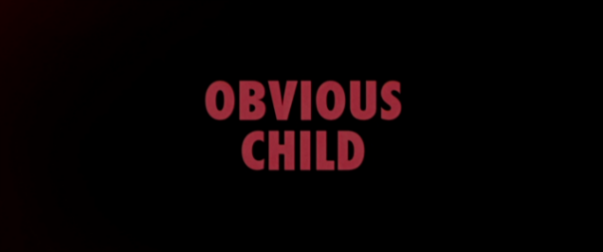

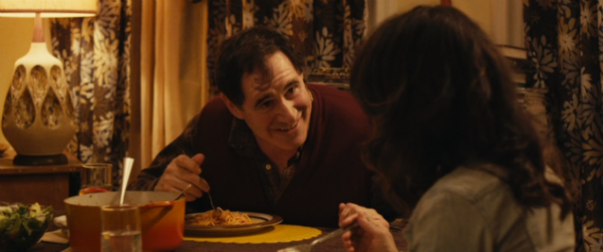

















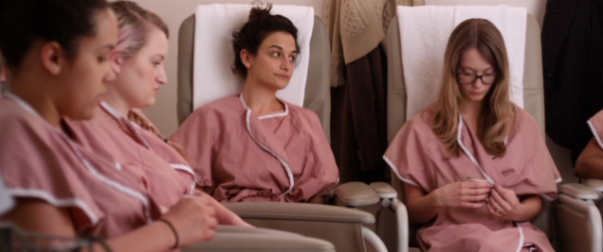



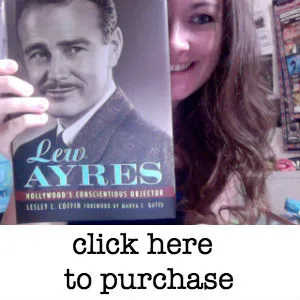

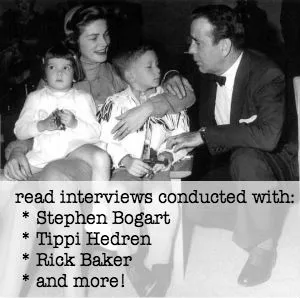
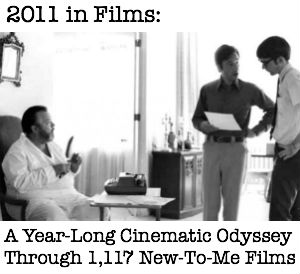
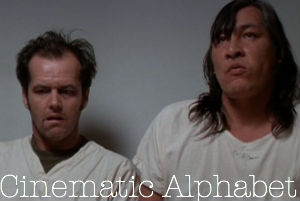

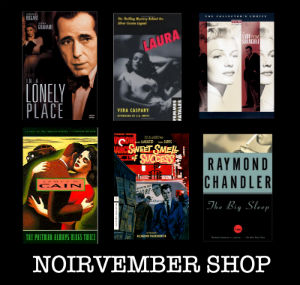
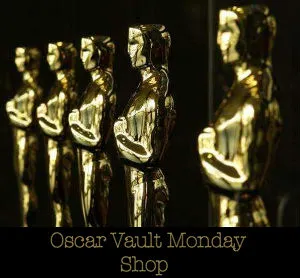

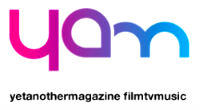





I don’t know, honestly, how it took me this long to realise you have a whole site full of reviews outside of your tumblr and youtube channel. Looks like i have a lot of full written reviews to catch up with. I love your stuff.
Definitely a great romcom for women! It’s realism is what gives it such great appeal…it maintains enough laughs to buffer the heavy moments. Great review here!
“Even in the era of legal, safe abortions, women are shamed for getting the procedure and don’t feel safe talking about it. The only way to break taboos is to talk about them, to share the experience with others and to normalize it so that it is no longer stigmatized. This movie presents this situation as something that happens, but it’s not devastating. It’s just part of life.” Beautifully put! I love this film and I must say, I’m a bit jealous you got to see Jenny Slate and Robbespierre doing a Q&A! Keep up the good work, I really enjoy your blog! 🙂
Pingback: Female Filmmaker Friday: 2014 Wrap Up | the diary of a film history fanatic
Pingback: Cinema Fanatic’s Favorite Fifteen Films of 2014 | the diary of a film history fanatic
Pingback: 2013 in Films: A 565 New-To-Me Films Year-End Recap | the diary of a film history fanatic
Pingback: 2014 in Films: A 365 New-To-Me Films Year-End Recap | the diary of a film history fanatic
Pingback: Female Filmmaker Friday | omen faces